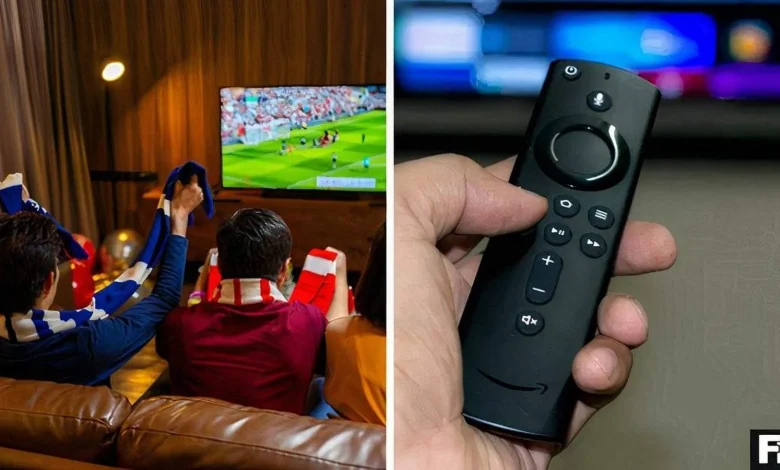Amazon Fire TV Stick Crackdown: Global Block on Piracy Apps Begins Today

Quick Read
- Amazon is blocking illegal Fire TV Stick apps globally starting today.
- Only apps flagged for piracy will be disabled; official streaming apps remain unaffected.
- The crackdown targets side-loaded apps, even those installed outside the Appstore.
- The initiative is supported by the Alliance for Creativity and Entertainment (ACE).
- Rising legal streaming costs have fueled demand for pirated apps.
Amazon Fires First Shot in Global Fight Against Piracy Apps
In a move that marks a turning point in the ongoing battle against digital piracy, Amazon has announced a sweeping global crackdown on illegal apps for its Fire TV Stick devices. Starting today, the company is blocking ‘dodgy’ applications that have enabled users worldwide to stream pirated movies, TV shows, and even live sports. This initiative is not just a routine update—it’s Amazon’s first major effort to tackle the problem at a device level, targeting side-loaded apps that have long evaded detection and enforcement.
For years, Amazon has kept its official Appstore clean of illegal streaming apps. Yet tech-savvy users found ways around these restrictions by manually installing apps from outside the Appstore—a process known as ‘side-loading.’ Until now, these unauthorized apps have slipped under the radar, giving millions access to copyrighted content for free. But with this latest update, the door is closing.
How the Crackdown Works: Blocking at the Source
The new measures go beyond mere Appstore policy. According to statements provided by Amazon to The Sun, the company will now block apps identified as providing access to pirated content—even those downloaded from outside the official channels. This is made possible through an expanded program in partnership with the Alliance for Creativity and Entertainment (ACE), a global coalition committed to fighting digital piracy.
“Piracy is illegal, and we’ve always worked to block it from our Appstore,” an Amazon spokesperson explained. “Through an expanded program led by ACE, we’ll now block apps identified as providing access to pirated content, including those downloaded from outside our Appstore. This builds on our ongoing efforts to support creators and protect customers, as piracy can also expose users to malware, viruses, and fraud.”
Crucially, the block operates at the device level, meaning even VPNs—tools often used to bypass regional or security restrictions—won’t be able to sneak illegal apps through. Amazon’s new in-house system, Vega, is being rolled out alongside the latest Fire TV Stick models, further strengthening the barrier against piracy.
What Remains Legal—and What Changes for Users
Not all apps are affected. Fire TV Stick users can still legally stream content from official sources like Netflix, Disney+, Amazon Prime Video, and BBC iPlayer. Side-loading itself isn’t being completely eliminated; only apps flagged as providing pirated content will be disabled. This means the device remains versatile for legitimate use, but the loophole for piracy is closing fast.
The crackdown is global, affecting users in every country where Fire TV Sticks are sold. For many, this means an abrupt end to accessing free streams of blockbuster movies, hit TV series, and live football matches. The change arrives amidst growing frustration among sports fans over rising ticket prices and the escalating costs of legal streaming subscriptions. As highlighted by FootballLeagueWorld, supporters are facing an expensive landscape, with some football clubs charging upwards of £45 for adult tickets and £35 for children.
The Impact: Piracy, Prosecutions, and Shifting User Habits
Illegal streaming has long been a thorn in the side of media companies and rights holders. The widespread use of unauthorized apps has led to numerous prosecutions, as authorities attempt to trace and shut down those selling or distributing piracy-enabling software. Amazon’s move is expected to deal a significant blow to these operations, making it harder for both creators and users of illegal apps to operate.
James Bore, a cybersecurity expert, told Metro that this crackdown is likely to disrupt the ecosystem for piracy app creators. “It’s going to cause a problem for the people who create these apps,” Bore said. However, he also noted a likely shift in consumer behavior: “People are just going to switch to non-Amazon devices, as this will only prevent those specific devices from being used for illegal streaming.”
It’s a prediction that raises broader questions about the cat-and-mouse game between tech companies and piracy networks. As Amazon tightens its grip on Fire TV Sticks, will users simply migrate to alternative devices? Or will the move set a new standard, prompting other manufacturers to follow suit?
Affordability and Access: The Wider Debate
The crackdown comes at a time when the cost of watching live sports and premium entertainment is climbing ever higher. Football fans, in particular, have voiced their frustration at ticket and subscription prices, which are making it increasingly difficult for many—especially younger supporters—to follow their favorite teams. The proliferation of illegal streaming apps on devices like the Fire TV Stick has, for some, been a workaround in the face of these financial barriers.
Amazon and its partners maintain that protecting copyright and supporting content creators is essential, but the debate over affordability and access continues. As legal options become more expensive and fragmented, the demand for free alternatives remains strong, even as enforcement efforts intensify.
For now, Amazon’s decisive action signals a new phase in the digital content wars. The message is clear: the era of easy piracy via Fire TV Stick is coming to a close, but the underlying challenges of affordability and access are far from resolved.
Amazon’s global crackdown on illegal Fire TV Stick apps sets a precedent for device-level enforcement, striking a blow against piracy but also highlighting the persistent tensions between copyright protection and affordable access for users. The move is bold, but whether it truly shifts consumer behavior or simply pushes piracy to new platforms remains to be seen.





